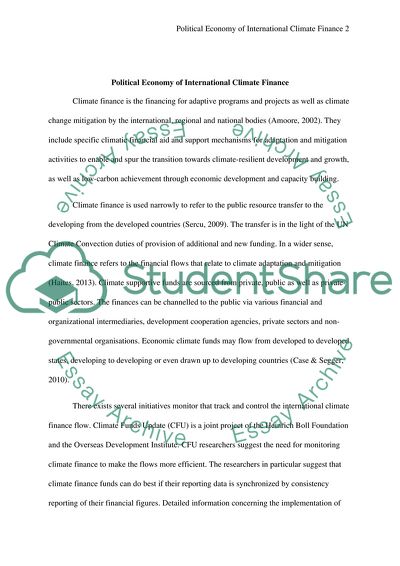Cite this document
(Political Economy of International Climate Finance Coursework, n.d.)
Political Economy of International Climate Finance Coursework. Retrieved from https://studentshare.org/finance-accounting/1854742-political-economy-of-international-climate-finance
Political Economy of International Climate Finance Coursework. Retrieved from https://studentshare.org/finance-accounting/1854742-political-economy-of-international-climate-finance
(Political Economy of International Climate Finance Coursework)
Political Economy of International Climate Finance Coursework. https://studentshare.org/finance-accounting/1854742-political-economy-of-international-climate-finance.
Political Economy of International Climate Finance Coursework. https://studentshare.org/finance-accounting/1854742-political-economy-of-international-climate-finance.
“Political Economy of International Climate Finance Coursework”. https://studentshare.org/finance-accounting/1854742-political-economy-of-international-climate-finance.


